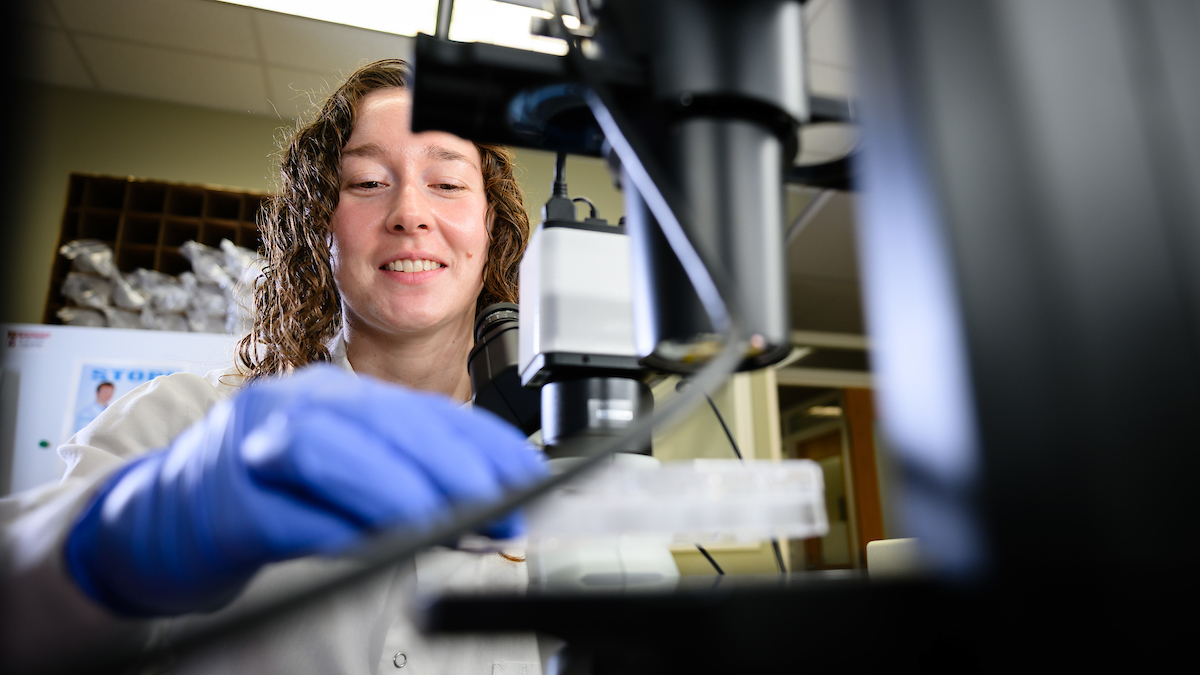Potter Candidate for Canine Bone Marrow Transplant
The following article is reprinted from the Orlando Sentinel
[section_subtitle]Orlando couple determined to get rare bone-marrow transplant for dog[/section_subtitle]
“Potter” could be first dog in Orlando to undergo the procedure
By Joseph Freeman
Baldwin Park dog diagnosed with cancer could be the first in Orlando to get a costly and relatively new procedure — a canine bone-marrow transplant — from one of the few veterinary hospitals offering the treatment.
Since it made the procedure available in 2008, North Carolina State University College of Veterinary Medicine has performed transplants on 36 dogs from several states. It’s too early to rate their long-term success, but that hasn’t stopped desperate dog owners from signing up.
Albert and Rebecca Gibson noticed one morning last month that Potter, their mixed terrier named after the wizard of book and movie fame, had glands swollen the size of golf balls. They took the dog to a veterinarian, and Potter was soon diagnosed with lymphoma, the most recurrent manifestation of cancer among dogs.
Rebecca researched online and found information about the treatment offered at NC State.
The pair decided to go for it and are looking at a bill of about $20,000 for the operation, chemotherapy, expenses, and travel to and from North Carolina. The bone-marrow transplant itself costs $14,500.
The Gibsons have started a website, https://sites.google.com/site/pottershope51505/, to chronicle their pet’s battle and accept donations to help pay for the transplant. Some of their acquaintances think they are crazy for shelling out that much for a dog.
"We are married, but we don’t want kids. The dog is our kid," said Rebecca, 31, who trains and rides horses for a living. Albert, 30, is a lawyer at an Orlando firm. "You spend twice, three times as much [on children]," she said. The couple’s other dog is a pit bull in good health.
Bone marrow is the soft tissue in bones. It holds stem cells that produce the oxygen-carrying red blood cells, infection-fighting white blood cells and platelets that help blood clot. The transplant reconstitutes tissue destroyed during chemotherapy or radiation, the more traditional methods of fighting canine cancer.
Studying cancer incidence rates among dogs and cats has led veterinary oncologists to issue some frightening conclusions about the possibility of these animals dying from malignant forms of the disease. The American Veterinary Medical Association says that cancer accounts for almost half of the deaths of dogs and cats older than 10, and cases of cancer in dogs are higher than those for cats.
Dr. Steven Suter, the NC State veterinary oncologist leading its bone-marrow transplant program, said while such transplants in dogs have been used for decades for research, they haven’t been readily available to dog owners.
"It always amazes me to this day," he said. The veterinary field has been hesitant to embrace the procedure for several reasons, Suter added. The machine needed for the operation can cost about $85,000. NC State has three donated from the Mayo Clinic. There also isn’t any reliable literature on the success or failure rate of canine bone-marrow transplants.
"It is still a bit early for us to say here, but we currently stand at 50 percent long-term, with our longest dog out 22 months post-transplant," Suter said. All the dogs who have relapsed, except one, have done so within four months of the transplant, he said.
Dr. Susan Randell, an internist at Affiliated Veterinary Specialists in Maitland, has heard Suter speak about the procedure and said the data is encouraging but too preliminary for any definitive conclusion.
"The fact that it’s only done at one facility in the country could give you some idea that it’s a fairly rare and experimental procedure," said Randell, who observed that the travel and expense required are considerable obstacles for some potential clients.
Hope is more powerful than statistics, though, and NC State is booked solid for the next few months by dog owners.
Potter is scheduled for early February, and is now being treated with chemotherapy. The smaller doses don’t affect dogs as much as humans. Potter is weaker at times but still goes on walks and has a healthy appetite.
His owners are hoping for the best outcome. Five years ago, Potter was wandering the streets of Miami covered in ticks and fleas until he ended up in a shelter, where the couple found him. They’ve loved him since and aren’t ready to let him go.
"Now he’s king of the castle," Rebecca said.
Posted Dec. 1, 2010
Learn more about the Canine Bone Marrow Transplant Program at NC State University’s Veterinary Teaching Hospital. Click here.


